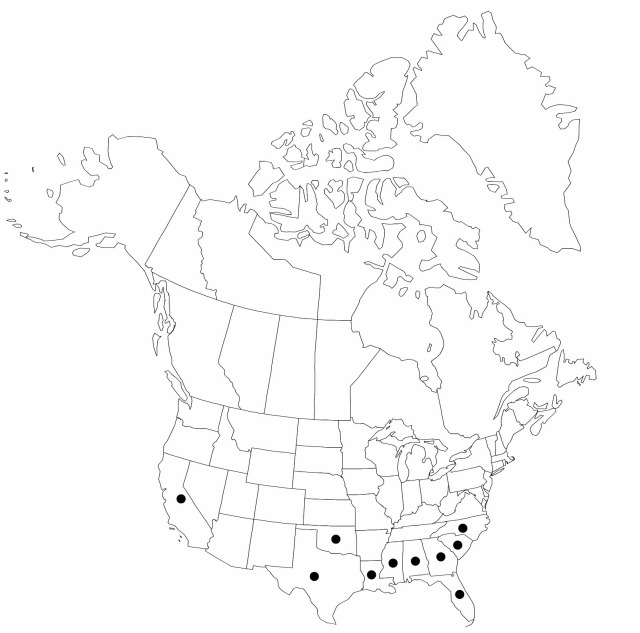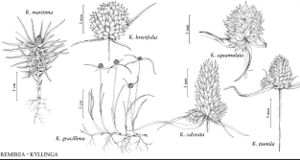Kyllinga brevifolia
Descr. Icon. Rar. Pl., 13, plate 4, fig. 3. 1773.
Plants perennial, cespitose or not, long-creeping rhizomatous. Culms sometimes spaced to 3 cm apart, (5–)12–25(–55) cm, smooth. Leaves flat, 2–21 cm × 1.5–3.5 mm. Inflorescences: spikes 1–3, 4–7 × 4 mm; bracts 3–4, longest ± erect, others ascending to horizontal, flat, 1.5–18 cm × 1–3.3 mm. Spikelets (20–)40–60(–100), pale greenish or reddish brown, ovate, (2.2–)2.5–2.8(–3.2) × (0.6–)0.7–0.8(–1.2) mm; floral scales laterally 2–3-veined, elliptic to ovate, 1.8–3 × (0.8–)1.1–1.6 mm, midvein not winged, apex mucronate; stamens (1–)2; anthers 0.8–1.1 mm; style 0.6–1.2 mm; stigmas 0.5–1.5 mm. Achenes brown, substipitate or stipitate, ellipsoid to oblong-ellipsoid, 1–1.2(–1.3) × 0.6–0.8 mm, stipe, if present, 0.1–0.2 mm, apex obtuse to subtruncate, apiculate, papillate.
Phenology: Fruiting summer.
Habitat: Damp grasslands, shorelines, ditches, croplands
Elevation: 0–200 m
Distribution

Ala., Calif., Fla., Ga., La., Miss., N.C., Okla., S.C., Tex., Mexico, West Indies, Central America, South America, Asia, Africa, Australia.
Discussion
Reports of Kyllinga brevifolia from Connecticut, Delaware, Maryland, New Jersey, Pennsylvania, and Virginia should be referred to as K. gracillima.
Selected References
None.
